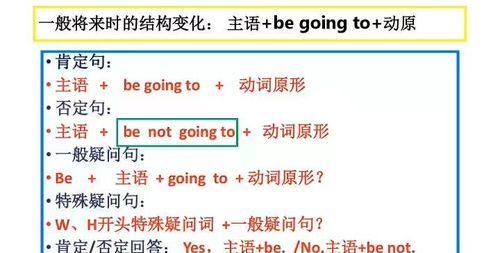一般将来时的疑问句在英语语法中表示将来的动作或状态,其构成需要使用助动词“will”或“shall”,并将其置于主语之前。特殊疑问词如what, when, where等也可以用于询问具体信息。理解和掌握这些规则可以帮助我们在日常交流中更自如地使用英语。

一般将来时疑问句的构成
一般将来时的疑问句的构成方式为:“Will/Shall+主语+动词原形+其他?”或者是“主语+Will/Shall+动词原形+其他?”
例如:
- Will you go to the party tomorrow?
- Shall we meet at the train station?
- Will they finish the project on time?
- Shall I bring some snacks to the meeting?
在构成一般将来时的疑问句时,需要注意的是助动词“will”和“shall”的不同用法。一般情况下,我们使用“will”来表示将来的动作或状态,而用“shall”时则通常表示征求意见或建议。
特殊疑问词的使用
在一般将来时的疑问句中,我们也可以使用特殊疑问词来询问更加具体的信息。这些特殊疑问词包括:what, when, where, why, who, whom, how等。
例如:
- What will you do this weekend?
- When will he arrive at the airport?
- Where will they have the meeting?
- Why will she quit her job?
- Who will help me with the project?
- How will you get to the party?
通过使用特殊疑问词,我们可以更加清楚地了解将来发生的事情的具体情况。

